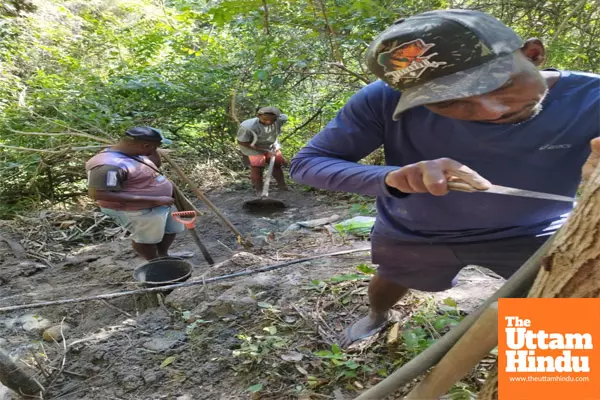Quilombola Community in Brazil Battles Lithium Mining to Protect Land and Food Sovereignty

New Delhi (The Uttam Hindu): The Quilombola community in Girau, Brazil, is leading a strong resistance against the expansion of lithium mining projects that threaten their land, resources and traditional way of life. The Quilombola people, descendants of Afro-Brazilian slaves, have established autonomous communities in remote areas of Brazil, where they maintain a deep, historic connection to the land their ancestors fought to protect. The growing global demand for lithium, which is crucial for electric vehicle batteries and renewable energy storage has sparked widespread concern over the environmental and social consequences of mining. While lithium mining can bring economic benefits it often results in devastating environmental impacts and the displacement of local communities. For the Quilombola in Girau the mining projects pose an existential threat to their natural resources—particularly their water sources and fertile lands—which are vital to their culture, identity and way of life.
In addition to opposing lithium mining, the Quilombola community is championing the principle of food sovereignty which emphasizes the right to control and produce their own food. By promoting sustainable agriculture and local food systems the Quilombola seek to retain autonomy over their land and food production, challenging the pressures of industrial agriculture and outside forces that seek to control their resources.
This resistance is more than just a fight against mining—it is a broader struggle to protect the environment, safeguard cultural heritage and ensure future generations have the resources to thrive. The Quilombola community’s efforts are part of a larger global conversation about balancing resource extraction with the rights of indigenous and marginalized communities as well as the growing need for environmental sustainability.
Their stand against lithium mining also reflects the fight for environmental justice and the recognition that the fight for land and resources is inseparable from the fight for social and cultural rights. As global demand for lithium continues to rise the Quilombola's resistance serves as a powerful reminder of the importance of defending indigenous rights and ensuring that development does not come at the expense of the environment and communities that depend on it.
